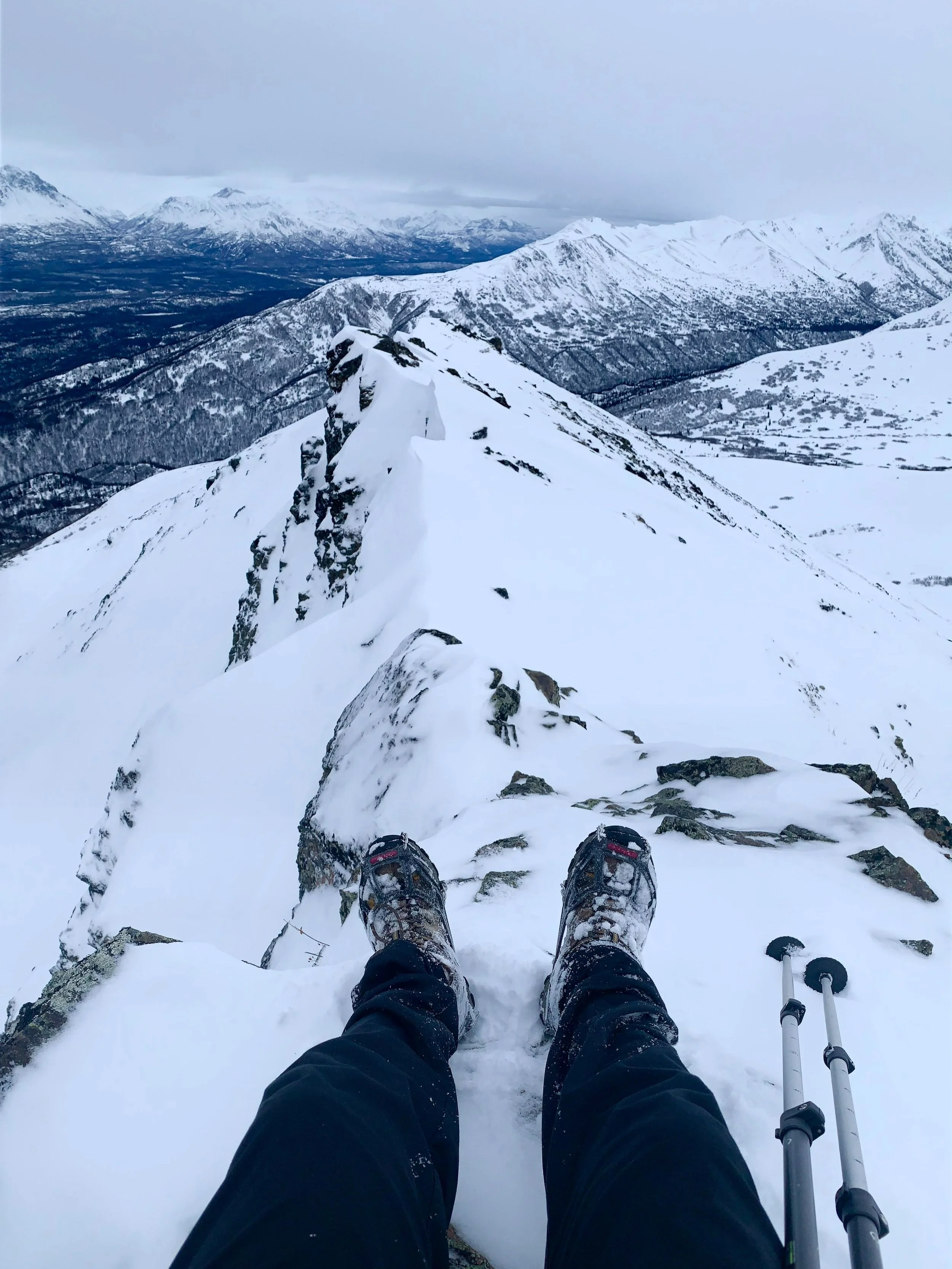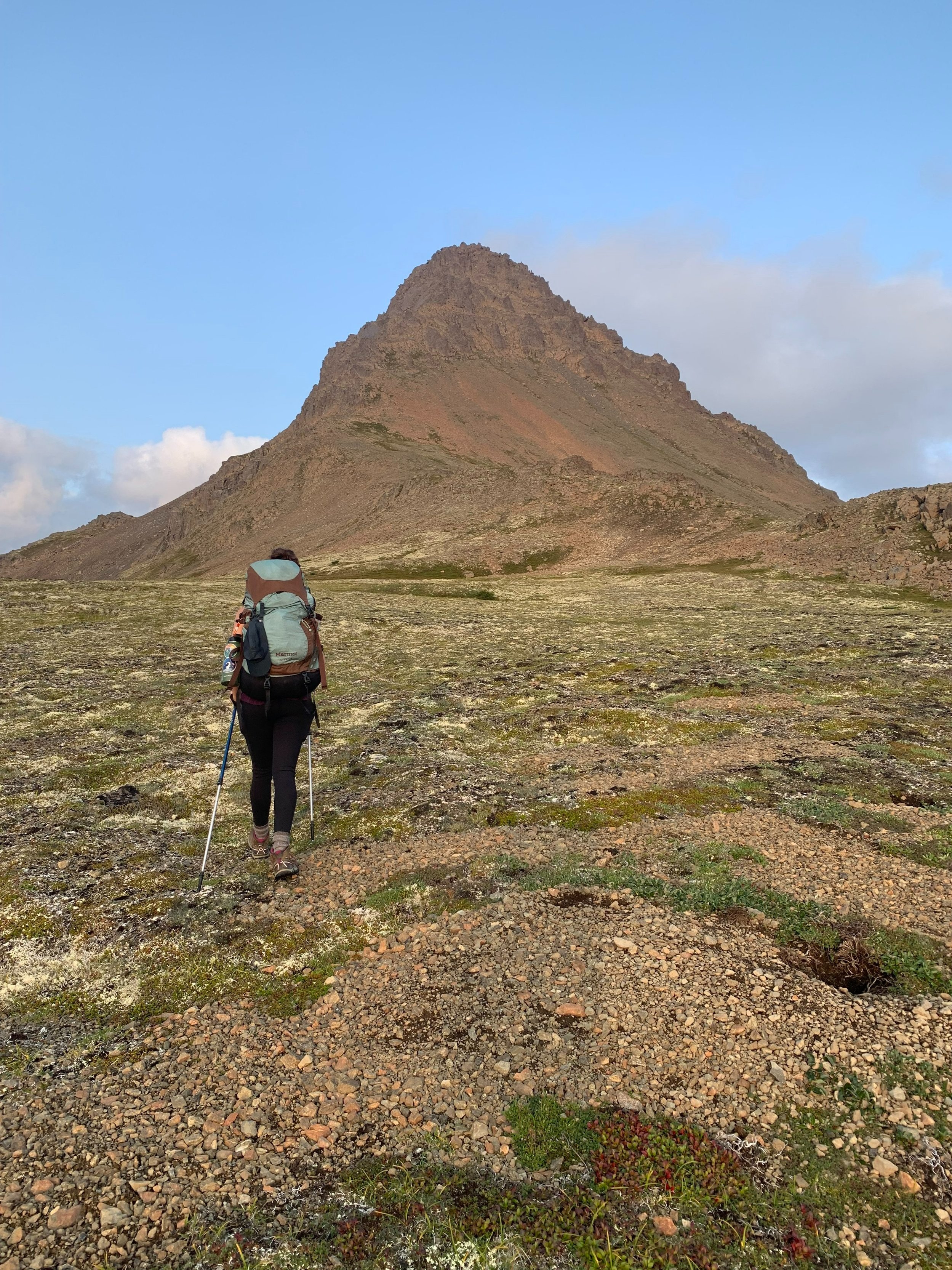Arrival
Congratulations! You made it to your destination...now what? In this section, I’ll go through some best practices while in another country or unfamiliar place. Trust me, it’s not as stressful as it seems!
General Tips
Dress in layers.
This advice is often repeated in Alaska, where changes in weather can be a matter of life and death. It means you should wear extra clothing because you can always take something off that you bring, while you can’t put something on that you don’t bring.
Global Entry
If you’re planning on vacationing internationally somewhat frequently over the next five years, then I highly recommend Global Entry. It’s a program for US citizens to expedite the customs process upon reentering the country. You apply online, get a background check, go in for an interview, and pay $100 USD. In return, you’re given TSA Precheck, an expedited customs line, and a trusted traveler number for five years—it’s a really good deal!
Don’t wait too long to go.
I hear many young people talk about how they’re going to travel or do what they love when they’re older, but there are no guarantees on tomorrow. I strongly recommend doing what you love while you still have the opportunity.
Life in Alaska is unforgiving so dressing in layers is a must.
Be open-minded.
The hype sword cuts both ways—places other people enjoy are not necessarily places you will enjoy and places other people hate are not necessarily places you will hate. I’ve learned this the hard way too many times, so remember to be open-minded and withhold premature judgment.
Never carry more than $200 USD in cash.
Theft can happen at any time, so it’s important to be prepared. If you’re a budget traveler, $200 USD is still a decent amount of cash. Plus, most developed places accept debit / credit cards.
Pro tip: fees from frequent visits to an ATM quickly add up, so consider withdrawing in bulk up to $200 USD.
Travel sim
When you arrive in a new country it’s fairly easy to sign up for a temporary phone plan at the airport. Many carriers offer inexpensive plans to nomads, although sometimes there are extra requirements (local address, citizenship, permit, etc.). Do some research in advance or consider investing in a worldwide Mifi device.
Insurance
Before you go on a journey, consider purchasing some travel-specific coverage. You can still get sick or hurt in another country and it’s important to be prepared!
How to Navigate Hostels
The best and most popular tool for booking hostels is Hostelworld, which is accessible via browser website or mobile app. While there are plenty of other options, none list as many hostels in as many places. According to their site, over 36,000 properties spanning 178 countries list rooms on their platform.
Using Hostelworld is a breeze. Search by the city you’re traveling to and the dates you’ll be in town, and the site will return a long list of hostels in the area. From there, find a few hostels within your price range with decent reviews. I like to shoot for prices between $10-40 a night with at least eight stars. I’ll compare three of the top results, reading the owner’s description and reviews from recent backpackers. All the amenities and policies are listed below images of the property. Some considerations are security, lockers, reception, kitchen, laundry, breakfast, bathrooms, showers, lounge, wifi, privacy, and outlets. The best places will typically have all of the above and more, as the hostel market is increasingly competitive. Hostelworld is unique in that it puts user reviews at the forefront of their booking process, allowing you to read the experiences of verified customers.
This is an example of a four-bed dorm. Nice hostels will have privacy curtains, personal outlets, and reading lights.
Once you’ve read up on a property, it’s time to choose a room. Booking is done directly through the app and takes just over five clicks. An online deposit is paid to Hostelworld, which counts towards the total price, and the rest is paid in person. Final considerations include the type of room (same gender dorm, mixed-gender dorm, or private suite) and the type of hostel (social, party, tranquil, etc.). Hostels are pretty straightforward once you arrive. The receptionist will usually lead you on a tour of the facility, show you to your room, and inform you of any special events coming up. I’ve covered recommended gear in a different section, but pack as though you were going to a local gym. At the bare minimum, you should bring a decent lock, shower sandals, and a microfiber towel. Some less thought of essentials include a headlamp, travel adapter, and bungee cord.
Note: hostel laundry services tend to be overpriced, albeit convenient. Try doing a quick Google search of laundromats nearby to see where the locals go.
Essential Applications
Google Maps (or local equivalent)
Over the years Google Maps has gotten smarter and smarter, leveraging a vast data network to find the most efficient routes and direct you along the way. It considers traffic, accidents, checkpoints, and more to give you the best possible experience whether you’re walking, biking, driving, ridesharing, or taking public transport. Google Maps is capable of suggesting places when you don’t know exactly what you’re looking for.
Pro tip: you can use TripAdvisor in your hometown to get a fresh perspective!
TripAdvisor
This app is one of my favorites for finding activities to do in a new city. It uses a unique user-based ranking system to bring you the top attractions, restaurants, and events in your area. Users are able to filter results by quality (1-5 stars) and price ($-$$$$), meaning exploring on a budget has never been easier. I like filtering results to show the cheapest and highest-rated restaurants in town, which is usually where the locals eat.
Hostelworld
If you want to meet sightseers from all over the world, never run out of things to do, and save tremendous amounts of money, then Hostelworld is for you. I attribute most of the good experiences I’ve had while backpacking to this app—there’s no better way to meet people while abroad. A couple of factors to note, however: you will lose a certain amount of privacy in hostels, the likelihood of theft is higher in shared rooms, and not all hostels result in amazing experiences. That said, I think the positives absolutely outweigh the negatives, especially if you’re traveling alone.
TripAdvisor helped me find this cool lookout tower in Puerto Rico.
Pro tip: try searching a word followed by ‘near me’ to get local recommendations (food near me, laundromats near me, what to do near me, etc.).
AllTrails helped us find Ptarmigan Pass, an awesome hike in Anchorage, Alaska.
Uber
Using Uber is not cheap compared to public transport, but it’s usually cheaper than a taxi (and doesn’t involve haggling or getting ripped off). The app is especially helpful when you need to get somewhere quickly or when your destination doesn’t line up with public transportation. Uber recently added more safety features to its app, allowing users to contact authorities at the push of a button. I’ve never had a bad experience with Uber, but always be vigilant.
WhatsApp / Instagram / Facebook
You’ll likely want to connect and keep up with all the great people you meet along the way, and most of the developed world is on social media. WhatsApp and other messaging apps are practically required to communicate internationally unless you have an international cell phone plan.
AllTrails
AllTrails lists and sorts trails across the world, enabling users to filter by quality, activity, and distance. This app is great if you enjoy spending time outdoors as it can track your activity and introduce you to new areas.
Safety Abroad
The only times I’ve gotten into uncomfortable safety situations abroad have been while alone and at night. Therefore, my personal rule is to never be by myself after sunset. While this has worked well for me, never grow complacent: you can find yourself in an unsafe situation at any point, no matter who you’re with. The best way to deal with a crisis is to prevent it from happening in the first place.
Alone and at night in Pisco Elqui, Chile.
Here are some tips to stay safe:
Never get so intoxicated that you can’t function properly.
Normal bar precautions apply: don’t leave your drink unattended, operate on a buddy system, and don’t lose track of your possessions.
Know your exits.
Know where multiple exits are in restaurants, venues, and bars. Unfortunately, violence and shootings can occur at a moment’s notice. Most people will immediately run for the door they entered through, which can lead to panic and crush, so always have a contingency plan.
Note: there’s usually a staff exit through the kitchen you can’t see.
Know self-defense basics, especially if traveling alone.
The goal of self-defense is to do one of the following: incapacitate your attacker to give yourself time to get away, buy yourself enough time for help to arrive or make yourself seem like more trouble than you’re worth. If being attacked, make as much noise as possible and target the eyes, throat, or groin of the attacker. If violence hasn’t occurred yet, consider cooperating / de-escalating the situation first. Your life is more valuable than your wallet.
Know where your belongings are at all times.
This one is a bit self-explanatory, but keep tight control over your valuables. In packed areas, zip up your pockets and watch for pickpockets. On the subway, for example, I take off my bag and keep it in between my legs slightly in front of me. If you’re an easy target, people can and will steal from you.
Pro tip: most hostels have a safe for valuables that is only accessible by staff (plus, most hostels can hold onto your baggage for the day if you’ve already checked out).
Be careful who you trust and talk to.
Get used to saying no and ignoring people. Scammers are insistent, but won’t waste their time if they don’t feel like they’re making progress. Don’t hold eye contact with randoms (unless you want to talk with them) and don’t be afraid to keep walking—these are universal signs you’re not interested. Most of all, trust your gut. There are good people out there, but if someone seems too eager or seems like they’re trying to manipulate you, they probably are.
Understand the culture you’re in even if you don’t agree with it.
There’s a time and place for self-expression, and that time isn’t always while abroad. It’s important to understand what’s considered offensive and what will attract attention. For example, if you’re in a conservative country, consider what clothes, actions, and mannerisms are appropriate for the area. Do some research beforehand and always ask if in doubt.
The number of scammers near the Eiffel Tower is unreal. Watch out!
A Word on Sustainability
In the 1960s wilderness exploration became the rage and Leave No Trace (LNT) quickly gained in popularity. Originally a set of ethics for outdoor recreation, LNT applies perfectly to traveling. While there are seven official principles (plan ahead, respect wildlife, minimize impacts, etc.), I can sum them all up in one golden phrase: leave each place better than you find it.
Leaving each place better than you find it will automatically grant you a deeper and more meaningful adventure. It doesn’t have to be anything major, either—any positive change you can make in the world is worthwhile. For example, consider volunteering abroad, respecting local customs, or dispelling stereotypes. If you’re transiting from a developed nation to an underdeveloped one, it’s important to recognize your influence and represent your home country in the best light possible. I like LNT principles because even if you’re uninterested in making the world a better place, you can at least minimize your impact.
Speaking of impact, traveling isn’t great for the environment. There are many ways to make your trip more environmentally friendly, like purchasing carbon offsets, taking public transportation, and avoiding single-use plastics. If you love exploring beautiful places, try your best to keep them beautiful for generations to come.
Click below to continue to the next section!







